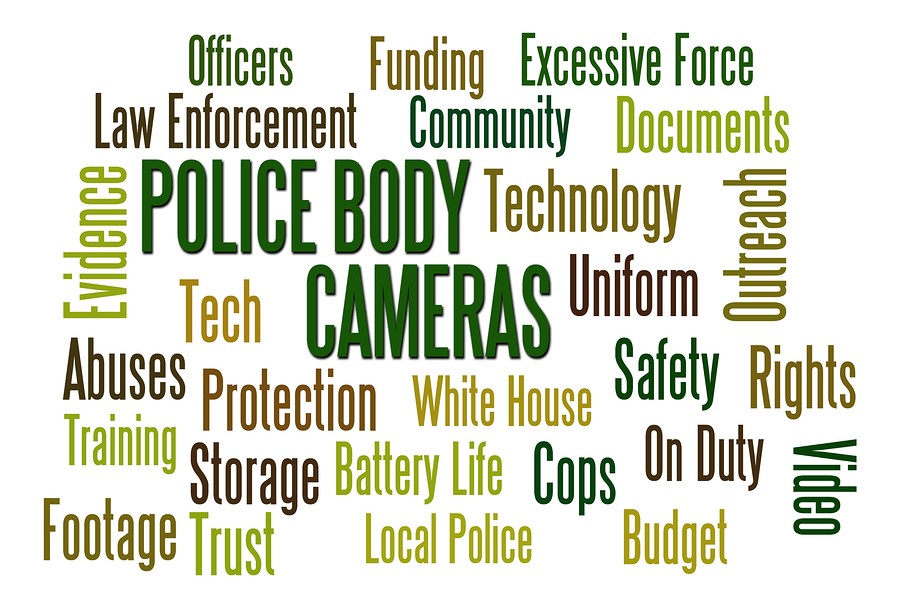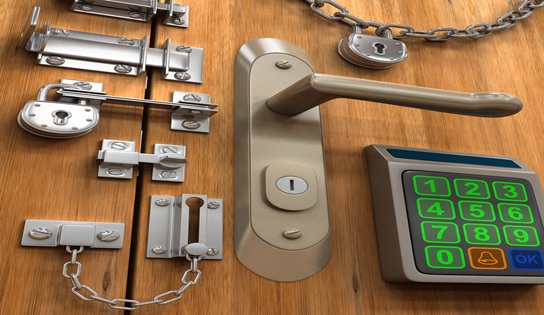Evaluating Smart Home Security, Post-SimpliSafe Scandal
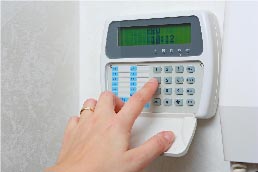
Seattle-based security consultants rocked the smart security industry last week when they revealed just how easy it is to hack one of the smart security provider SimpliSafe’s home security systems. Using just $250 worth of hardware and a basic coding knowledge, consultants at security firm IOActive were able to record any SimpliSafe system’s four-digit pin and replay it to disarm the system. The vulnerability affects 300,000 customers across the United States who protect their home with SimpliSafe.IOActive, which claims that SimpliSafe rebuffed the agency’s attempts to alert it to the replay vulnerability, filed a report with federal security regulators and issued a consumer advisory against the home security provider on Wednesday.
 The advisory reignited the old consumer skepticism that any connected device can truly be secure from hackers. Americans are infamously reluctant to perform sensitive tasks, such as banking, online, because they still question internet security practices.Although the SimpliSafe scandal seems to confirm the consumer fear that someone with more tech know-how then they have could hijack their connected devices, this fear is luckily largely unfounded. Thanks to advancements in encryption and best practices, today’s online security protocols are overwhelmingly safe.
The advisory reignited the old consumer skepticism that any connected device can truly be secure from hackers. Americans are infamously reluctant to perform sensitive tasks, such as banking, online, because they still question internet security practices.Although the SimpliSafe scandal seems to confirm the consumer fear that someone with more tech know-how then they have could hijack their connected devices, this fear is luckily largely unfounded. Thanks to advancements in encryption and best practices, today’s online security protocols are overwhelmingly safe.

As SimpliSafe customers discovered last week, however, provider assurances are not enough to guarantee safety. Independent auditors, like IOActive, are key to keeping smart security providers accountable for the safety of their customers. In the spirit of independent evaluation, we present our reviews of popular smart home security systems. First, here is why consumers choose them over traditional systems in the first place:
The Advantages of Smart Home Security
Despite SimpliSafe’s current woes, there are many reasons to choose a smart home security system over a traditional one. – Convenience: Traditional analog security systems lack the remote, centralized control that makes smart systems so user friendly. With smart security, users can monitor their homes’ video and sensor feeds from their smartphones, wherever they are. They can respond quickly from their phone app when the system raises an alarm, preventing unnecessary police intervention. They can also arm or disarm their system remotely to let guests and workers into their homes without giving out their passcode. – Economy: Innovation is, overall, driving down the cost of home security systems. Although professional smart security is more expensive than traditional security, competitive self-monitored systems from companies like Google and Apple make home security more cost effect than ever. – Integration: As part of a complete smart home suite, users can control their security system, entertainment system, lights, and heating remotely from the same phone app. Integrating different aspects of home management into one automation app makes it easier for the home owner to keep their residence safe, comfortable, and energy efficient at the same time. – Scalability: Smart security, particularly self-installed systems, makes customization easier for the user. Not only does the user have the freedom to arrange cameras and sensors as they’d like (and check viewing angles immediately with monitoring apps), the diversity in professionally monitored and self-monitored systems gives the user the freedom to choose the level/scale of security he or she prefers.
Smart Home Security Systems Reviews & Costs
Smart home security systems come in three varieties: professionally installed and monitored, self-installed and professionally monitored, and, now, self-installed and monitored. All smart security systems are connected to a backup wireless network so that your home is protected even when your internet is down.
Professionally Installed, Professionally Monitored
Professionally installed and monitored security systems are by far the most popular, making up 93% of smart security market shares in 2015 [1]. These professional systems resemble the features of traditional systems, but with improved monitoring, integration, and control. As a result of their popularity, professional providers are big players that offer their customers streamlined total security solutions. None of SimpliSafe’s woes seem to haunt these experienced providers.
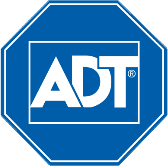
ADT is the trusted market leader in home security. Their smart service, ADT Plus, includes many of the features of traditional security, like professional monitoring, but also complete home automation suites that include scheduled and motion-sensitive lights that are controlled from an integrated smart home app for phone and computer.
Cost: ADT prefers to withhold their price point until the potential customer is committed enough to invite a representative for an in-home visit (it makes sense, since customization can greatly affect cost and since the economically minded customer has many less expensive options to go for anyway), but a basic ADT Plus package will cost the user around $48 per month [2]. Installation fees: ADT charges for both installation and equipment. Though frequent new customer promotions reduce the cost of both (with promotion, the installation fee is typically $99), customers should expect to commit a few hundred dollars, at least, to the set-up process [2]. Contract: Three years Early termination fee: 75% of the total remaining monthly charges Guarantees: If your security system is not functional, you qualify for a complete refund within six months with the ADT Money Back Guarantee. If your ADT-protected home is burglarized, ADT will cover up to $500 of the insurance deductible with the ADT Theft Protection Guarantee. Other ADT guarantees cover moving and homeowner’s insurance discounts [3]. Our Recommendation: If safety is what you’re after (and if it’s not, why are you here?), well-established ADT is your safest bet.
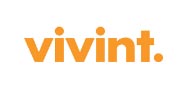
As another smart home pioneer, Vivint offers security services integrated with complete home automation. The provider’s basic security features – its Smart Protect plan – include door and window alarms, monitoring, smoke detection, and severe weather warnings.
Cost: Like most professional security providers, Vivint prefers to withhold pricing until it can size up what it’s working with. For an exact price point, potential customers should contact the provider for a quote, but Smart Protect packages start at $54 per month [4]. Installation fees: Vivint charges for installation, but not for basic equipment. The provider does offer frequent fee installation promotions for new customers. Without the promotion, installation costs $99 [5]. Contract: Three and a half years Early termination fee: 100% of the total remaining monthly charges, waived in the case of death, bankruptcy, military deployment, or transfer to assisted living. Guarantees: Vivint will replace your damaged (normal wear and tear, not neglected) equipment for free for 120 days after purchase and for $49 thereafter through their Lifetime Equipment Warranty. Our Recommendation: Expect fewer fees and less bureaucratic bullshit, but a higher monthly cost and (unfortunately) more legal bullshit, with new kid on the block Vivint. If you know how to play the game, Vivint is a good value.

AT&T Digital Life offers profession home security that the provider also markets as a way for users to monitor their homes, children, and pets. Their basic security package, Smart Security, includes an indoor siren, three door sensors, and three window sensors.
Cost: A basic Smart Security package costs $40 per month [6]. Installation fees: Like all fees from AT&T Digital Life and other smart home security providers, installation fee varies with the amount of equipment the customer needs installed. For Smart Security customers, installation/activation costs $50 [6]. Contract:Two years Early termination fee: $99 within the first 14 days, thereafter $720 minus $30 for each month of service [7] Guarantees: None advertised. Our Recommendation: If you’re unable to make a long-term commitment to smart home security, AT&T has a shorter contract than its competitors and a less expensive early termination fee (AT&T has a maximum ETF of $720; ADT of about $2300; Vivint of about $3800).

Fluent Home Security is a customizable security and automation service. The provider places an emphasis on customer service and individual care. Its basic security package includes burglary, theft, fire, smoke, and heat monitoring and remote arm and disarm.
Cost: Fluent doesn’t make a reference price point publically available. The company prefers to withhold pricing until a representative can size up a customer’s residence and custom package. The company didn’t respond to our request for a pricing disclosure within 24 hours. Installation fees: Fluent withholds installation and equipment fees. Contract: Three years [8] Early termination fee: The company didn’t respond to our request for an ETF disclosure within 24 hours. Guarantees: Fluent will answer 80% of customer calls within 60 seconds and resolve 100% of service issues within 7 days as outlined in the Fluent Service Guarantee. Our Recommendation: Fluent’s emphasis on customer care make it the perfect provider for customers who want individualized attention. Self-Installed, Professionally Monitored Self-installed smart home security kits are more laissez-faire than professionally installed kits. Despite the relative ease of self-installation, fewer consumers choose it over professional installation; providers like those listed below held just 4.7% of market shares in 2015. Just compare SimpliSafe’s 300,000 accounts with ADL’s 8 million to see the difference. Self-installed kits come with varying levels of professional monitoring, from full-on surveillance to emergency services.
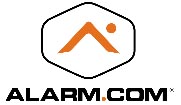
The security systems of popular economical provider Alarm.com are always professionally monitored and usually professionally installed, although customers also have the option to self-install. Alarm.com does not sell its service directly to customers, but third party vendors like LiveWatch offer its packages. The provider’s most basic package includes door sensors, smoke detection, and remote arm/disarm.
Cost: Third party vendor LiveWatch’s self-installed Mobile Pro package costs $35 per month [9]. Equipment fees: Through LiveWatch, there is a $99 equipment fee with an ongoing promotion. Without the promotion, base units cost between $400 and $500 [10]. Contract: None Early termination fee: None Guarantees: LiveWatch offers a Limited Lifetime Warranty on all its Plug&Protect hardware. Our Recommendation: Low costs and no annual contract are major pluses for Alarm.com/LiveWatch. This security service is perfect for the commitment shy.

Right now SimpliSafe is engulfed in passcode repeater controversy. It’s a controversy that SimpliSafe’s logo “Make Home Feel Safe Again,” does little to dispel (Why “feel” safe? Why not be safe?). But if SimpliSafe addresses the weakness in its security protocols effectively (which is all independent auditors want), the popular provider will bounce back from its current woes stronger than before.
Cost: $25 per month for the Interactive Alarm Monitoring & Alerts plan [11] Equipment fees: $200 for the most basic package [11] Contract: None Early termination fee: None Guarantees: SimpliSafe has a 100% Satisfaction Guarantee. Customers can return their system within 60 days for a full refund. The provider also offers a 3 Year Full Warranty on its equipment. Our Recommendation: There’s a lot to like about Simplisafe, but don’t buy until the provider has remedied its flawed security protocols.

Security provider Frontpoint offers smart intrusion, fire, and flood alarms as well as lifeline services in its most basic plan. Advanced features include full smart home capabilities like automated and remotely accessible door locks, automated lights, and remotely accessible heating.
Cost: The Frontpoint Protection Plan, its most basic, costs $35 per month [12]. Equipment fees: Standard equipment costs $99 per month with promotion [13]. Contract: Varies from no contract (for renters) to a contract that lasts 12-36 months for homeowners [14] Early termination fee: 80% of the total remaining monthly charges [15] Guarantees: New customers can recover all service and equipment costs with Frontpoint’s 30-Day, 100% Risk Free Trial. There is a Three-Year Warranty on all equipment. Also, many Fairpoint customers are eligible for a homeowner’s insurance deduction. Our Recommendation: Frontpoint’s ETF is high for self-installed systems and high for the industry in general. However, if you’re looking for a self-installed system with a service contract, Frontpoint is a good choice since it offers discounts to customers who sign a contract.
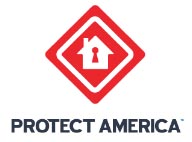
Protect America offers traditional landline security (from $20) as well as broadband and cellular plans. Their basic security package includes three door or window sensors, a motion detector, and professional monitoring.
Cost: The Copper Plan, Protect America’s most basic, costs $42 per month [16]. Equipment fees: None Contract: Three years [17] Early termination fee: 100% of the total remaining monthly charges [18] Guarantees: Customers can cancel service within the first two weeks for $79 with the provider’s 14-Day Trial. If customers find a better deal on the services offered in Protect America’s Bronze, Silver, Gold, and Platinum packages, the provider will match the price with its Low Price Guarantee. There is also a Lifetime Equipment Warranty on the equipment Protect America provides. Our Recommendation: Protect America’s contract is one of the toughest in the industry, but, if you’re willing to make a firm commitment, this provider can lock you into the best rates/value with the Low Price Guarantee.

Link Interactive offers an impressive list of features in its basic plan including broadband/cellular connected security, remote access, crash and smash protection (if someone tries to gain entry by breaking your control panel), smoke, fire, carbon monoxide, water, and flood detection, and remote light control.
Cost: Customizable plans start at $40 per month, but contact the company for an exact quote [19]. Equipment fees: Basic fire and security equipment costs $179. Energy management and security equipment costs $350 [20]. Contract: Three years Early termination fee: 100% of the total remaining monthly charges [21] Guarantees: Link Interactive offers a 30-Day Money Back Guarantee [22]. Our Recommendation: Link Interactive is trusted by Costco, which sells the product as its only smart security system. The provider has overwhelmingly positive online reviews. Self-Installed, Self-Monitored Self-installed and monitored security systems made up the smallest percentage of smart home security market shares in 2015 – just 2.3%. These systems are deconstructed, do-it-yourself cameras and sensors designed in Silicon Valley, in the maverick spirit of Silicon Valley. Because DIY kits are economical, easy, and appeal to those who would never buy a professional security system anyway, industry insiders predict they will be the next big thing in home security.

Nest, a Google hardware venture, offers self-installed, self-monitored security equipment including the Nest Cam surveillance camera, the Nest Learning Thermostat, and a Nest Protect smart smoke detector. This equipment is synched with smartphone so users can access it remotely with an app.
Cost: Nest Cam costs $199 plus $100 per year for a 10-day video history. Nest Thermostat costs $249. Nest Protect costs $99 [23]. Guarantees: Google protects all Nest equipment with a 30-day Limited Warranty. Our Recommendation: Nest Cam is an inexpensive way to do video security/monitoring, particularly if you’re monitoring non-emergency situations or reviewing footage that doesn’t need the immediate response of professional surveillance.
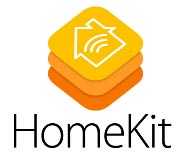
HomeKit, Apple’s home management app, lets users control over 50 Apple-approved home products (lighting, locks, heating and cooling, sensors, plugs and switches, and shades) from their iPhones.
Cost: HomeKit-enabled products range in price from the $19 Apple TV remote (smart entertainment) to a $300 Withings Aura Smart Sleep System (sleep-cycle analysis) [24]. HomeKit apps are mostly free, with several costing up to $15 each. Guarantees: Vary with product. Our Recommendation: If you want the convenience, economy, integration, and scalability of smart security, but aren’t interested in having your home monitored by a security company, AppleKit products are a decentralized way to approach the matter.

Security expert Scout offers a wide range of self-installed, self-monitored products similar to what you would install in a professionally monitored system including door and window sensors, motion sensors, and control panels. Scout offers professional monitoring, but it’s not necessary to run its system.
Cost: Equipment costs between $129 (for the Scout Hub control panel) to $29 (for an Access Sensor). Professional monitoring starts at $10 per month with no contract [25]. Guarantees: Scout offers a one-year Limited Warranty (covering manufacturing defects only) on all its products [26]. Our Recommendation: Scout is great if you want a full security system, but don’t need professional monitoring.



